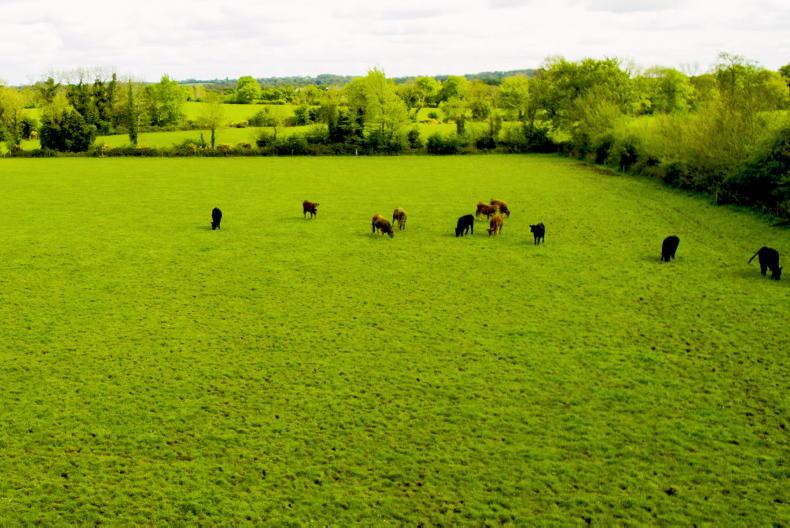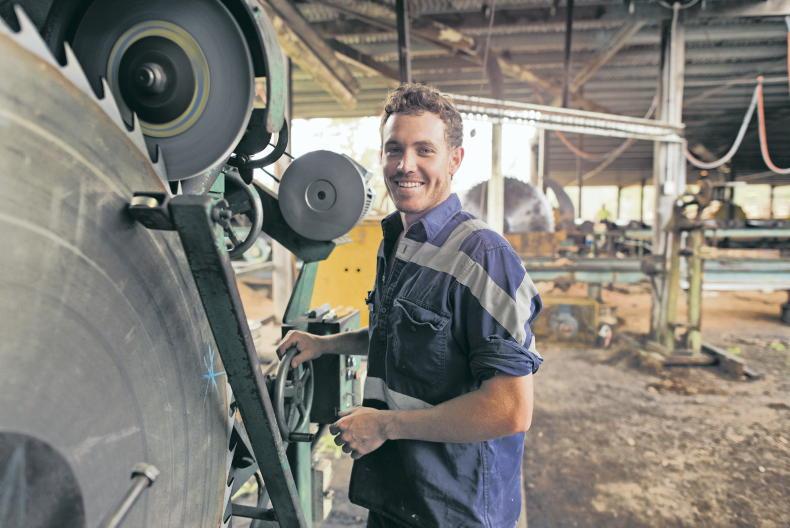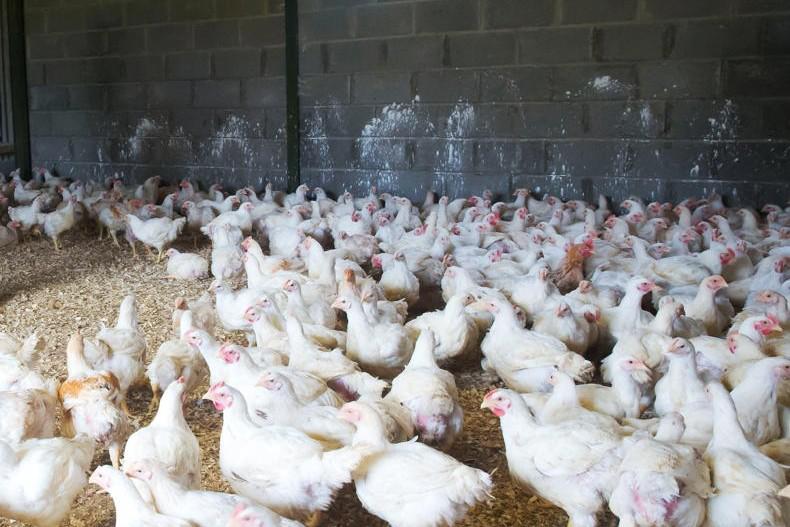Capital gains tax (CGT) is a tax which is payable on any capital gain (profit) made when you dispose of an asset.
In the context of farming, CGT becomes payable where a farmer disposes of certain assets such a land, buildings, shares or entitlements.
CGT is payable on disposing of land and buildings – whether sold or transferred during the owner’s lifetime – on certain farming assets of the farming business including basic payment entitlements and on company shares.
You may be able to avail of certain reliefs or exemptions, which will reduce the amount of CGT that you must pay, depending on an individual circumstances.
Rates of CGT
The current rate of CGT is 33%. This may be reduced if entrepreneur relief applies, which can reduce CGT to 10%. The CGT tax-free amount in any year is €1,270 for an individual. If an asset is held in joint names this annual exemption amount will be €1,270 each, but it is not transferable from one spouse to the other. Any transfer of assets between husbands and wives are not liable to CGT. Any losses sustained by one spouse are transferable to the other spouse.
Entrepreneur Relief (ER)
This relief is available to individual owners of a trade or business (companies or sole traders), including farmers, with regard to the disposal of all or a part of that trade or business they have owned for at least three years. The three years must be in the five years immediately prior to the disposal.
There is a lifetime limit of €1m on the gains that you can claim relief on. A CGT rate of 10% will apply to the net chargeable gains arising from disposals of qualifying assets. The value of ER can be up to €230,000 for an individual (€460,000 if jointly held between spouses).
How can I qualify for Entrepreneur Relief?
You must have owned the business assets for three years continuously within the five years immediately prior to the disposal.The disposal must relate to a qualifying business (this will include the majority of active farmers whether trading as sole traders or companies).It must be a chargeable business asset that is being disposed of, which includes agricultural land which was part of the farming business. The chargeable business asset must have been beneficially owned for a continuous period of three years out of the five years prior to the disposal date. This applies to both sole traders and sellers of shares.Where a farming business is operated by a company, you must have owned at least 5% of the ordinary share capital. You must still be or must have been a director or employee of the company who spent 50% or more working time in that company – for a continuous period of three out of five years –immediately before the disposal of the shares. The relief does not apply to assets personally owned outside the company, even if used by the company, such as land.
Would Entrepreneur Relief have made much difference to us?
Dear Money Mentor,
I am a married, part-time beef farmer (49), who considered selling our jointly-owned 100ac farm in November 2019. We were offered €990,000. We originally bought this farm in two parcels, 60 acres for €33,500 in 1979, and 40 acres in 1980 for €40,000. All the land is registered in our joint names. Over the years we have spent about €180,000 on new farm buildings. We didn’t go ahead with the sale at that time. I am now wondering what the CGT liability would have been if we had sold the land. Do you think if we had qualified for entrepreneur relief, would it have made much of a difference to us with regard to tax? We still intend to sell the land at some stage. We would welcome your advice.
Regards,
David.
Margaret writes
Hi David,
Before you go ahead with any sale I would advise you both to avail of professional tax and legal advice to ensure you are fully informed of reliefs available to you. Selling any asset is a big decision and needs careful consideration before proceeding. I hope that the information below is of assistance to you, best of luck with your decision.
Regards,
Margaret
Read more
Money Mentor: Qualifying for State benefits as a farmer
Money Mentor: managing debt on farms to save money and create peace of mind
Capital gains tax (CGT) is a tax which is payable on any capital gain (profit) made when you dispose of an asset.
In the context of farming, CGT becomes payable where a farmer disposes of certain assets such a land, buildings, shares or entitlements.
CGT is payable on disposing of land and buildings – whether sold or transferred during the owner’s lifetime – on certain farming assets of the farming business including basic payment entitlements and on company shares.
You may be able to avail of certain reliefs or exemptions, which will reduce the amount of CGT that you must pay, depending on an individual circumstances.
Rates of CGT
The current rate of CGT is 33%. This may be reduced if entrepreneur relief applies, which can reduce CGT to 10%. The CGT tax-free amount in any year is €1,270 for an individual. If an asset is held in joint names this annual exemption amount will be €1,270 each, but it is not transferable from one spouse to the other. Any transfer of assets between husbands and wives are not liable to CGT. Any losses sustained by one spouse are transferable to the other spouse.
Entrepreneur Relief (ER)
This relief is available to individual owners of a trade or business (companies or sole traders), including farmers, with regard to the disposal of all or a part of that trade or business they have owned for at least three years. The three years must be in the five years immediately prior to the disposal.
There is a lifetime limit of €1m on the gains that you can claim relief on. A CGT rate of 10% will apply to the net chargeable gains arising from disposals of qualifying assets. The value of ER can be up to €230,000 for an individual (€460,000 if jointly held between spouses).
How can I qualify for Entrepreneur Relief?
You must have owned the business assets for three years continuously within the five years immediately prior to the disposal.The disposal must relate to a qualifying business (this will include the majority of active farmers whether trading as sole traders or companies).It must be a chargeable business asset that is being disposed of, which includes agricultural land which was part of the farming business. The chargeable business asset must have been beneficially owned for a continuous period of three years out of the five years prior to the disposal date. This applies to both sole traders and sellers of shares.Where a farming business is operated by a company, you must have owned at least 5% of the ordinary share capital. You must still be or must have been a director or employee of the company who spent 50% or more working time in that company – for a continuous period of three out of five years –immediately before the disposal of the shares. The relief does not apply to assets personally owned outside the company, even if used by the company, such as land.
Would Entrepreneur Relief have made much difference to us?
Dear Money Mentor,
I am a married, part-time beef farmer (49), who considered selling our jointly-owned 100ac farm in November 2019. We were offered €990,000. We originally bought this farm in two parcels, 60 acres for €33,500 in 1979, and 40 acres in 1980 for €40,000. All the land is registered in our joint names. Over the years we have spent about €180,000 on new farm buildings. We didn’t go ahead with the sale at that time. I am now wondering what the CGT liability would have been if we had sold the land. Do you think if we had qualified for entrepreneur relief, would it have made much of a difference to us with regard to tax? We still intend to sell the land at some stage. We would welcome your advice.
Regards,
David.
Margaret writes
Hi David,
Before you go ahead with any sale I would advise you both to avail of professional tax and legal advice to ensure you are fully informed of reliefs available to you. Selling any asset is a big decision and needs careful consideration before proceeding. I hope that the information below is of assistance to you, best of luck with your decision.
Regards,
Margaret
Read more
Money Mentor: Qualifying for State benefits as a farmer
Money Mentor: managing debt on farms to save money and create peace of mind









SHARING OPTIONS